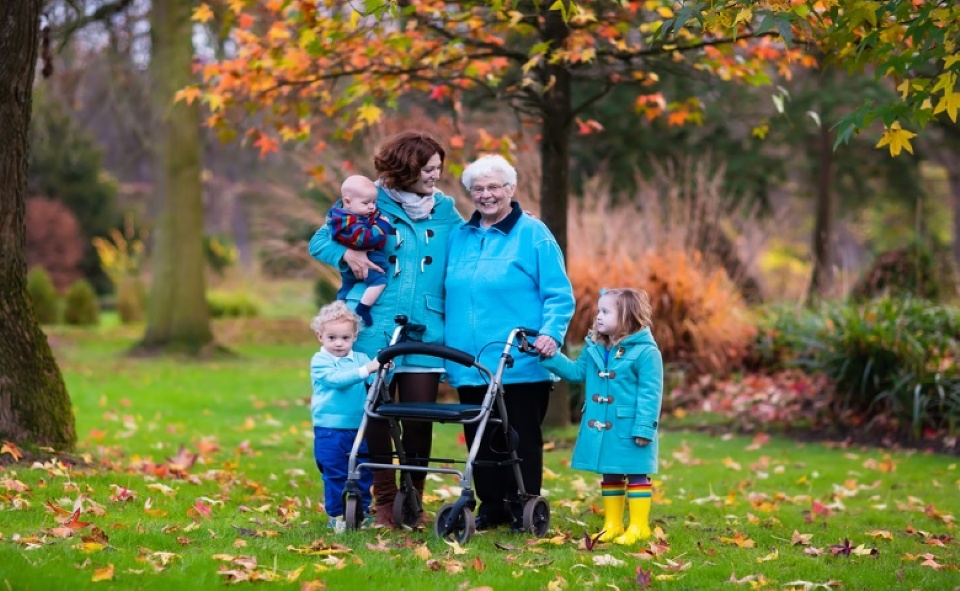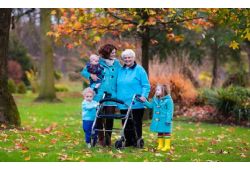“I’m really not sure I should
go,” mused Alessandra, contemplating a much-needed long weekend away with her
husband and preschool children. “They might call to say they've found Mom a
long-term placement.” Her Alzheimer’s mother was awaiting a bed in a long-term
care facility close to Alessandra’s home and it could be any day now. She felt
that she needed to be there to help her mother make the transition from her
current interim placement, especially since her brother was working abroad.
Sitting across the café table
from Alessandra, her friend Shelley retorted; “It's better than what’s
happening with my Aunt and Uncle right now. I’m running back and forth between
Montreal and Toronto because they're in two different nursing homes and some
kind of crisis always seems to come up! I’m running ragged holding down a
part-time job and getting the twins ready for college in the Fall.”
“Sounds like you two are
pretty sandwiched!” observed Tamara. “That’s a case for staying single! But
even I am feeling the stress of being a caregiver as well as doing all my
course work.” Tamara was single and back in school, with her newly-widowed
mother living with her.
Does this sound familiar to
you? These adults are part of a growing phenomenon; The Sandwich Generation,
caught between the diverse needs of their own lives and those of their elderly
parent or relative. Typically in middle adulthood, Sandwichers find themselves
caring for an elderly relative while juggling career, children, family needs,
studies, and more. They are suddenly thrust into the situation of making
life-altering decisions with and for their elderly parent or relative. They
aren't used to this new role of taking care of their parents’ financial,
physical, emotional, and social needs. And their time is often compromised as
they manage full lives of their own!
In the early 2000's this
issue was so prevalent and compelling that I proposed and won funding through
the Quebec Association for Adult Learning (QAAL) for a project to deliver a
series of workshops on this topic to remote communities around the province of
Quebec. I learned that many families suffer this phenomenon which prevails just
as much today as it did then. And my motivation for revisiting this important
topic is that we are reliving this sandwich experience with my mother-in-law,
now in the later stage of Alzheimer's Disease.
Here are some important
thoughts to consider if you are finding yourself sandwiched and facing the role
of caregiver for a family member or friend;
- Be aware of the normal developmental stages of the aging process and associated limitations and diseases.
- Initiate important conversations with your elderly relative and family members about "What if...?" This is very difficult to do and involves much tact, diplomacy and effective listening skills.
- Learn how to get into the driver's seat with your elderly relative and actually begin actively planning for the "What if...?" This is the hardest part and may involve issues related to power of attorney, living will or mandate of incapacity, not to mention the actual notarized will. Do this early on as there is nothing more frustrating than having your hands tied because the paperwork is not in order.
- Become an advocate and mentor for your elderly parent or relative. You may often find yourself making decisions and dealing with health professionals on behalf of the person for whom you are caring. And while you may not like it, someone needs to advocate and mentor during this important life transition.
- Link with local support services. Don't wait for health professionals to tell you what you need. Tell them. Make the system work for you. It is indeed a case where the squeaky wheel gets the grease. Speak to social workers and reach out to those provincial associations, such as the Alzheimer Society, for valuable information to help you navigate these uncertain waters.
- And perhaps most important of all, manage care-giving by learning to say "No" and apply some of that care-giving TLC to yourself. You cannot adequately care for another person when your own reserves are depleted. Take time for you, be it to exercise, see a film or have coffee with someone in YOUR own support system.

 In The Latest Issue:
In The Latest Issue:





Tweet
Share